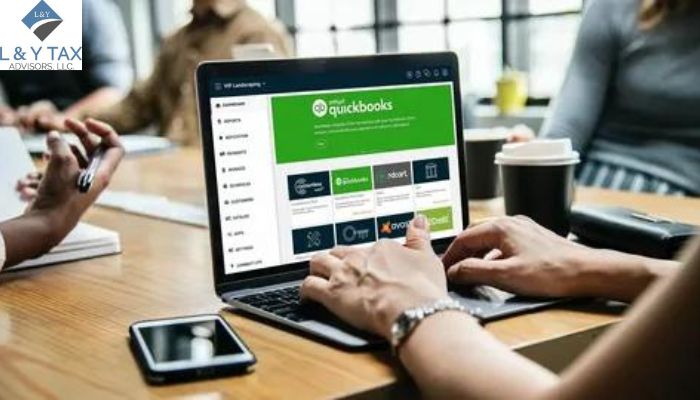
Do Large Companies Use QuickBooks?
Intuit has designed QuickBooks typically for small and medium-sized businesses (SMBs) but do large companies use QuickBooks? Is there a possibility that this accounting software can be used by bigger corporations? Or is there any specific QB version launched particularly for sturdy management of accounts? All such queries shall be answered in this article. Let’s dive in!
Do you know how many businesses use QuickBooks? This year’s analysis demonstrates that more than 72,000 business startups opt to utilize the functionalities provided by QuickBooks that prove to be useful for their financial stability.
To know about how many small businesses use QuickBooks, know that the majority of them are from the United States, making a mark of approximately 82%.
QuickBooks Versions
Since its launch, different versions of QuickBooks, such as QB Desktop or QB Online, have been released with time so that the features its offers remain categorized concerning new, small, and medium-sized businesses.
Rumors regarding a few versions such as the shutting down of QuickBooks Desktop had also been circulating which might have caused you to interrogate yourself if you should switch to other versions or if can you buy QuickBooks without a subscription.
The user-friendly packages of QuickBooks are not subscription-free anymore, and their cost-effectiveness ranges from low to high, depending on your budget. For instance, you can sign up for a simple start plan from as low as $30 per month and the price of advanced plans reach up to $200 per month.
Click here to know the benefits of QuickBooks
A Comparative Guide: Do Large Companies Use QuickBooks?
The answer to do large companies use QuickBooks can’t be simplified as mere yes or no because you need to keenly observe the advantages and drawbacks that come with each of the versions. All other versions except QBE are designed for either new, small or medium businesses.
Before jumping to conclusions, go through the details of each of them and decide if your observations align with the accounts and appropriate financial operations to sustain your business growth. Possibilities behind if QuickBooks is outgrowing your business or not will help you make informed decisions.
QB Version for Large Businesses
As Intuit claims cordial usage for new, small, and medium businesses, QuickBooks Enterprise is separately designed to be used for large companies whose starting price is $1340 per year and employs a maximum number of 40 users. However, each of the versions comes up with their pros and cons. As the pros of all the QB versions are something to consider practicing its utilization, the disadvantages of QuickBooks Online cannot be neglected.
Is Your Business Outgrowing QuickBooks?
You need to consider these reasons if you’re thinking about do large companies use QuickBooks or not; you may think that switching to a high-profile software package signifies that you’ve made it to the big leagues but life events aren’t always fortunate to transform higher levels into higher values.
1. Scalability
The successful growth of your business venture symbolizes the growth of your office team which highlights the importance of security and permission levels. QuickBooks comprises features that don’t compromise the integrity of your business and allow full control over who can see your data.
In addition, the permission to extend your team within QBE premises is also acceptable along with the option to free up space by placing dormant or old customers’ data into a separate file.
2. Industry-Specific Solutions
QuickBooks Enterprise offers solutions that can meet the needs of businesses such as manufacturing and wholesale, contractor, non-profit organizations, retail, and electronic data interchange (EDI). However, detailed prospective additions will surely meet even more specific needs because these technicalities are often poorly documented and are subjected to rare upgradation.
3. Lacking Resources to Switch
Being a business owner, you must be fully aware of the importance of time management. If, somehow, you feel that none of the versions of QuickBooks is fulfilling enough to meet your business requirements, it is because it typically takes at least six months to switch all of your accounting and financial data to another robust software. There might be a possibility that you don’t comprise enough manpower for such a challenging switch, for now.
Is It Time to Ditch QuickBooks?
If your business recognizes any of the following signs, maybe it is time for you to move on to and grow your organization with a better and more comprehensive enterprise resource planning (ERP) system.

1. Spreadsheet Overload
QuickBooks has some limitations for you to access to the system as vital company data is stored on the spreadsheets which makes the workers hunt for the data which is always prone to manual error while entering the data.
2. Lack of Visibility
The greater the number of customers, products, revenue, and sales of a business, the more difficult it becomes to gain insight into the QuickBooks data because the information is stored on separate spreadsheets which doesn’t allow the data to be available in real-time.
3. Tedious Closing Tasks
The workload at the end of the month limits the functionality because of the monthly period-end close. This forces the working staff to track down the records from various departments before entering them into QuickBooks and then cross-posting transactional data between the systems.
What companies use QuickBooks
QuickBooks Accounting Software helps companies track income and expenses efficiently while handling taxes. Their product suite of desktop, online, and cloud accounting applications suits various business houses perfectly.
Small to mid-sized businesses find QuickBooks accounting software the perfect combination of ease-of-use and reporting performance, initially released by Intuit in 1983. Over the years it has quickly amassed an enormous user base.
How many companies use QuickBooks
Around the world, in 2024, over 148,809 companies have started using QuickBooks as a small-business-accounting tool. Companies using QuickBooks for small-business accounting are majorly from the United States, with 120,492 customers. 85.30% of QuickBooks customers are from the United States, and it saw its accounting revenue surge 32% year over year during Q3, having improved the lives of 45 million people and gross annual revenue of over 4 billion US dollars! Accounting, bookkeeping, and payroll industries often use QuickBooks when accounting for small business accounts.
Reaching out to companies using QuickBooks can produce excellent B2B marketing leads; investing in a tele-verified, flexible, cost-effective, and credible QuickBooks customer list from Thomson Data could yield outstanding results!
The initial Quicken software did not function as a “double-entry” accounting package. The initial release of QuickBooks was the DOS version that was based on the Quicken codebase. The Windows and Mac versions shared a different codebase that was based on In-House Accountant, which Intuit had acquired. The software was popular among small business owners without formal accounting training. As such, the software soon claimed up to 85 percent of the US small business accounting software market.
Here’s list:
- 1. Moki Doorstep
- 2. CBlocks.io
- 3. PureFilters
- 4. Cat Sushi
- 5. Dream Pops
- 6. Robo 3D
- 7. TomboyX
- 8. Ventana Surfboards & Supplies
- 9. Dick At Your Door
- 10. Joker Greeting
What type of companies use QuickBooks?
QuickBooks, like Xero and FreshBooks, is a flexible accounting software that is used by a wide range of businesses in many sectors. QuickBooks is especially useful for small and medium-sized enterprises when it comes to properly handling finances. QuickBooks helps retail firms track sales, manage inventory, and handle client transactions effortlessly. QuickBooks is used for invoicing, expenditure monitoring, and payroll administration by service-oriented businesses such as consulting firms and marketing agencies.
Non-profit organizations also rely on QuickBooks because of its particular capabilities for managing donations, grants, and fund accounting. In addition, freelancers and self-employed professionals use QuickBooks to streamline tax preparation, track revenue and spending, and keep precise financial records.QuickBooks is extremely popular among real estate organizations, healthcare providers, and manufacturers because to its robust reporting features and scalability. QuickBooks’ adaptability makes it a crucial tool for businesses wishing to optimize their accounting procedures and acquire greater financial insights, similar to how Xero and FreshBooks help their clients.
Conclusion
To conclude all the presented answers behind ‘Do large companies use QuickBooks?’ A general rule of thumb is to consider that if you’re running a small or medium business, QuickBooks accounting software is a must but if your business has reached the desired heights, considering both the advantages and disadvantages becomes a necessity to sustain a prolonged progressive journey.
Also Check: Bookkeeping & Tax Services

